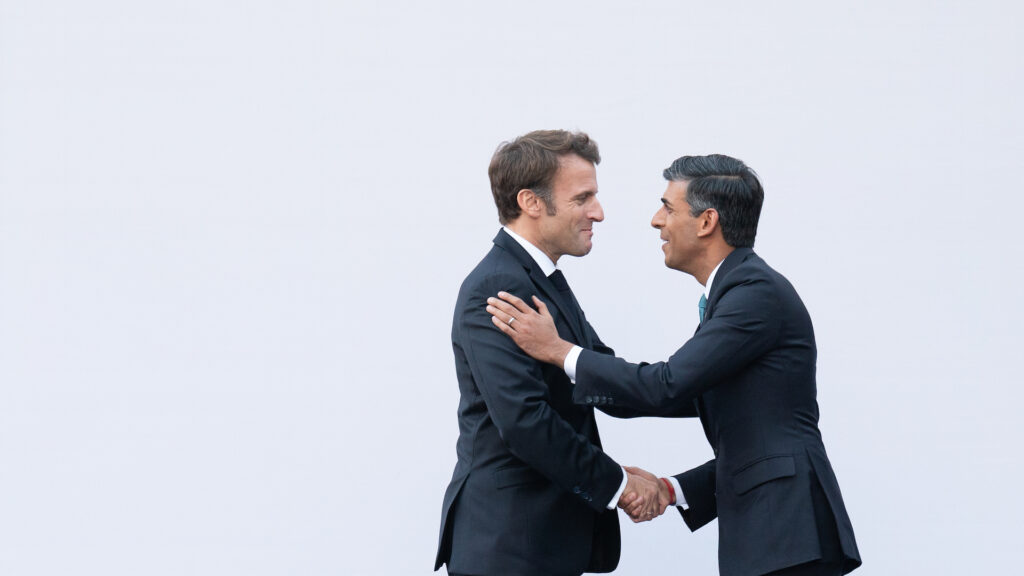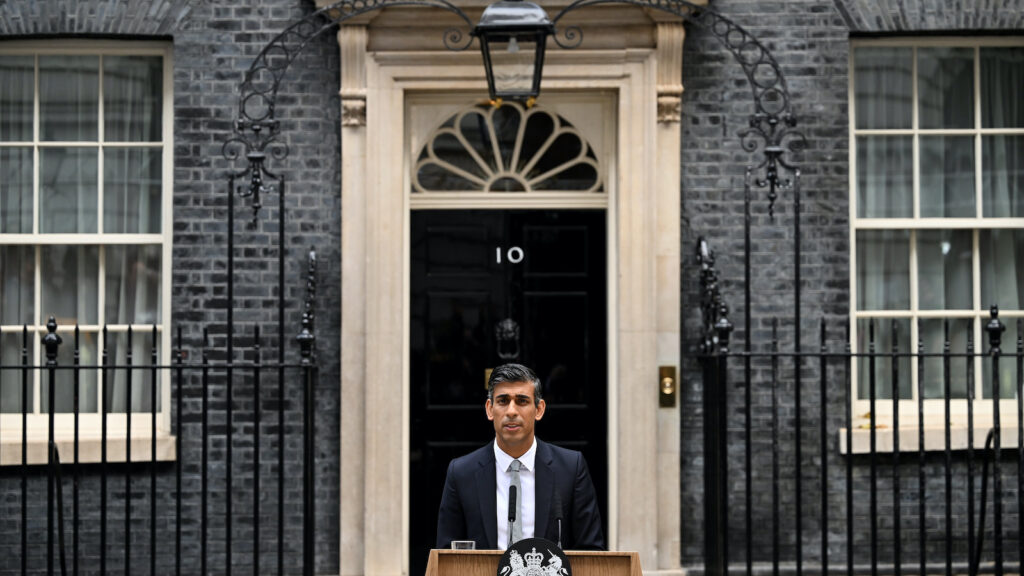
The headquarters of the World Trade Organization in Geneva, Switzerland. The future of the WTO is in doubt following the blockade by the Untied States of appointments to the WTO's Appellate Body.
Photo: Robert Hradil/Getty Images
Earlier this month, the WTO stopped hearing new appeals by countries that object to a WTO ruling when two of the remaining three members of the WTO’s Appellate Body retired. Because the U.S. government has blocked all new appointments to the WTO’s Appellate Body, it has made the body inoperable, since three Appellate Body members are needed to hear an appeal.
BRINK asked professor Nicolas Lamp, a WTO expert at the Faculty of Law of Queen’s University, Canada, about the significance of this move.
Nicolas Lamp: For the first time since the establishment of the WTO in 1995, the Appellate Body cannot accept any new appeals, and that has knock-on effects on the whole global trade dispute settlement system. When a member appeals a WTO panel report, it goes to the Appellate Body, but if there is no Appellate Body, it means that that panel report will not become binding and will not attain legal force.
The absence of the Appellate Body means that members can now effectively block the dispute settlement proceedings by what has been called appealing panel reports “into the void.”
The WTO panels will continue to function as normal. When a panel issues a report, it will normally be automatically adopted — unless it is appealed. And so, even though the panel is working, the respondent in a dispute now has the option of blocking the adoption of the panel’s report. It can, thereby, shield itself from the legal consequences of a report that finds that the member has acted inconsistently with its WTO obligations.
What Percentage Goes to Appeal?
BRINK: What percentage of cases heard by the panel generally go to appeal? Is it most of them or a small percentage?
Mr. Lamp: It’s a majority. It varies, but it’s been around 60% going to appeal. But that may change, of course. One possibility is that WTO members could conclude agreements where the two parties essentially agree in advance that they’re not going to use appeal.
If they refrain from going to appeal, then the system would continue functioning as normal; you would still have legally binding panel reports, as well as the entire mechanism that the WTO has for authorizing retaliation in the case of noncompliance.
BRINK: What about all the other obligations of the WTO, because clearly the WTO is made up of a whole patchwork of agreements?
Mr. Lamp: The issue of functionality of the dispute settlement procedure has no impact whatsoever on the legal force of other WTO obligations. Sometimes it’s portrayed that these obligations can no longer be enforced, but we have to keep in mind that the way in which WTO rulings are enforced is by trade sanctions imposed by individual WTO members.
WTO members are still able to use sanctions to try to get other members to comply with their obligations; the only question is whether these sanctions will be authorized and supervised by the WTO, or whether they are imposed unilaterally.
BRINK: Is there a risk of vigilante justice?
Mr. Lamp: Yes, that’s exactly the risk. Take the example of a WTO member who brings a case, say, against the United States. There will be a panel report, but now the U.S. has the option of blocking the adoption of that panel report by appealing it into the void, as it just did for the very first time in a case brought by India. Then the WTO member — in this case, India — is deprived of remedy in the sense that it won’t be able to get authorization from the WTO to retaliate against the United States.
The fear is that the WTO member will just go ahead and retaliate on their own without any supervision or without any restraints imposed by the WTO. Instead of having a “court” decide what the appropriate amount of retaliation is, you would have members taking the law into their own hands.
If the U.S. does not accept the retaliation imposed by India and responds by imposing retaliation of its own, you will have a spiral of retaliation, and so you end up with a trade war. That is the underlying concern — that there will be a proliferation of vigilante justice.
BRINK: Do you think that will accelerate an avoidance of the WTO, in general, and more bilateral agreements between countries?
Mr. Lamp: I don’t think so because most WTO Members, including the U.S., remain very much engaged in the negotiations over WTO reform. And it’s important to remember that the vast majority of trade happens under WTO rules that are never violated.
Take the analogy of a domestic court. You wouldn’t say that, just because the court is not sitting, people are going to stop obeying the rules. I don’t think this is going to have a huge impact on members’ willingness to comply with the rules and also to negotiate new rules. One example is the WTO’s rules on e-commerce, which everybody is following. [Or, rather, the e-commerce moratorium. These are not new rules on e-commerce, but a commitment not to impose restrictions on e-commerce for the time being.]
What Is the Impact on Brexit and US/China?
BRINK: Does it have any impact on the U.S.-China trade dispute?
Mr. Lamp: No, because when it comes to China, the U.S. has essentially already done what everybody’s feared, namely, taken the law into its own hands. It has imposed the tariffs on China under U.S. law, namely, Section 301 of the Trade Act of 1974, without any basis in WTO law at all. China has challenged these measures in the WTO, but has also just retaliated without waiting for authorization from the WTO.
BRINK: And what about Brexit? Does it have any implications for Brexit and the negotiations between the U.K. and the EU?
We could see a bit more vigilante justice, but in a way that ultimately tries to incentivize countries to stay in the system and to play by the rules.
Mr. Lamp: I don’t think so either. Both the U.K. and the EU have an extremely strong interest in keeping trade as free as possible. Yes, there’s a potential for having a WTO dispute one day. But the EU has actually come up with an interim mechanism to replace the Appellate Body that uses an arbitration procedure that’s available in the WTO’s dispute settlement understanding.
The EU is now asking countries to commit to this interim procedure, and Canada and Norway have already signed up. So, I think the most likely outcome would be that the U.K. would also sign up to this if the Appellate Body hasn’t been revived by the time the U.K. leaves the EU and WTO rules become applicable between the EU and the U.K.
What About Reform of the WTO?
BRINK: A number of countries have had complaints about the WTO and its structure over the years. Do you believe that the WTO is in need of serious updating?
Mr. Lamp: Well, it’s always a bit tricky to complain about the WTO, because what the WTO does or what happens is essentially up to what the members do. So if the negotiations don’t work out, it’s because the members can’t agree.
One of the big flashpoints at the moment, for example, is whether China and India can still claim to be developing countries. The U.S. is pushing very hard, insisting that China and India shouldn’t be allowed to be treated as developing countries.
Regarding the Appellate Body, not everybody was happy with the way the Appellate Body had evolved. But no other WTO member was supporting the United States in its decision to just dismantle the Appellate Body by blocking the reappointment of Appellate Body members. It was only the U.S. that took that stance.
How Has the EU Reacted to the New Situation?
BRINK: The EU Commission recently proposed a modification to its enforcement regulation. What was that about?
Mr. Lamp: At the moment, under U.S. law, the U.S. can act as prosecutor, judge and jury and decide when other members have acted unreasonably and then implement sanctions.
In its recently unveiled proposal for a modification of the EU’s enforcement regulation, the EU Commission has taken a different approach. The modified regulation would authorize the EU Commission to use retaliation without WTO authorization, but only in cases when a WTO member blocks the WTO dispute settlement process by appealing into the void. So, the EU would be using retaliation in a way that essentially reinforces the system.
They’re saying, if you play along by either agreeing to adopt the panel report or following our appeal arbitration procedure, then we will not retaliate with sanctions. I think that’s a really interesting approach to trying to deal with this new situation.
If this model spreads, then more countries such as Canada, for example, or even China and India, may commit to using unilateral retaliation only in cases where another party has blocked the adoption of the panel report. Then we could see a bit more vigilante justice, but in a way that ultimately tries to incentivize countries to stay in the system and to play by the rules.








